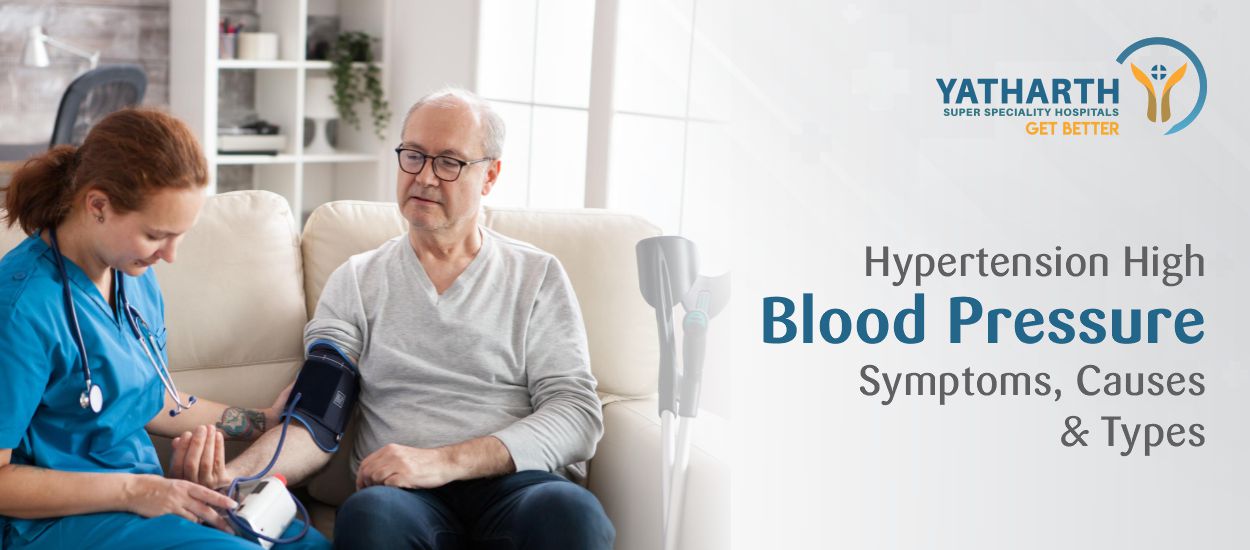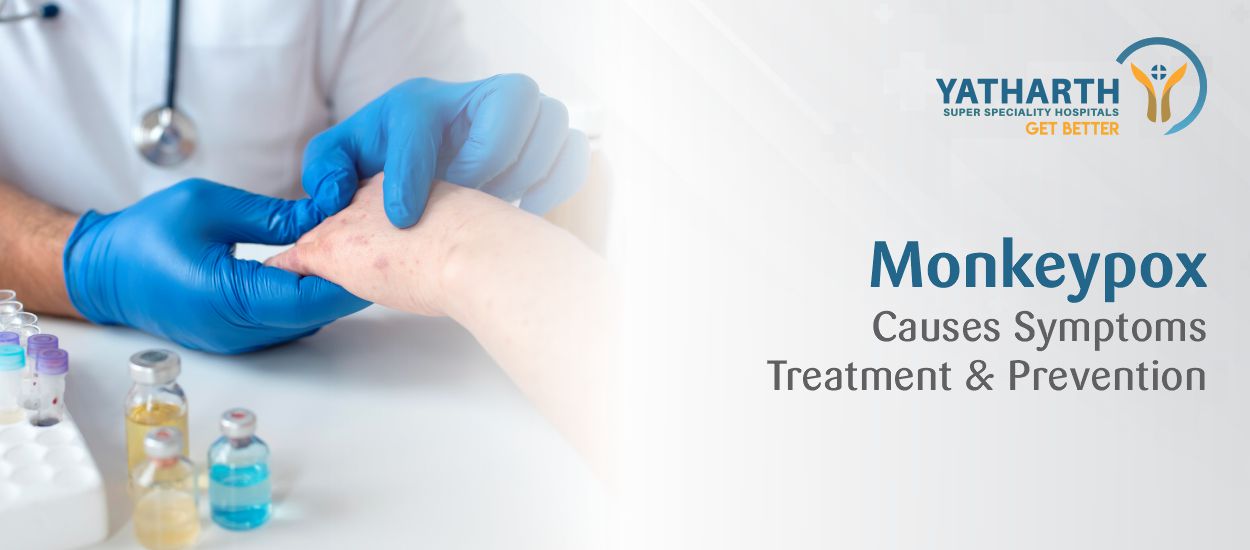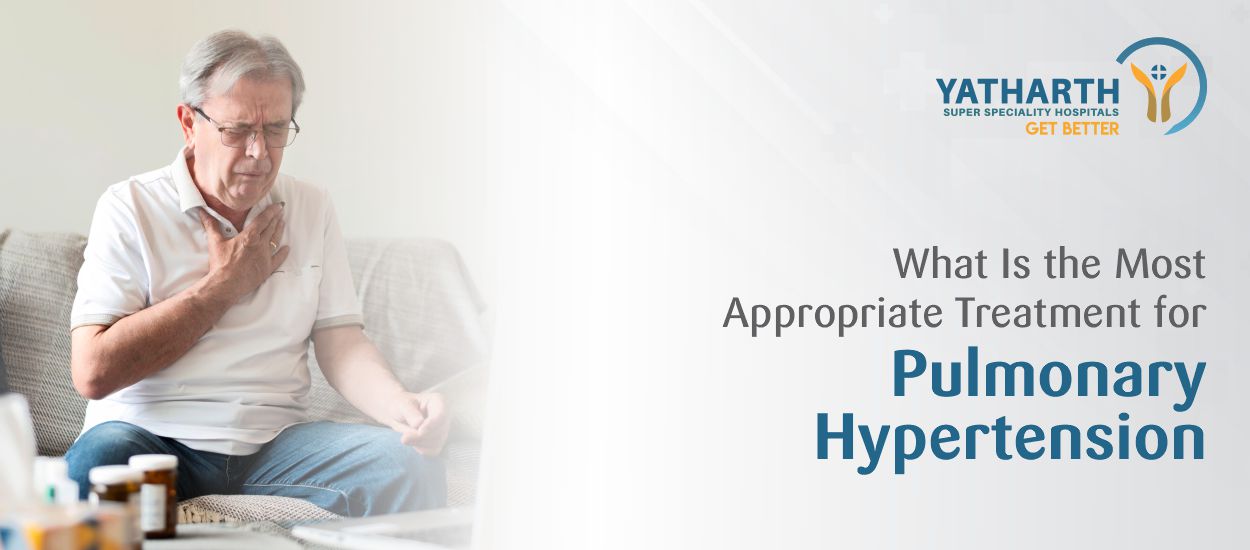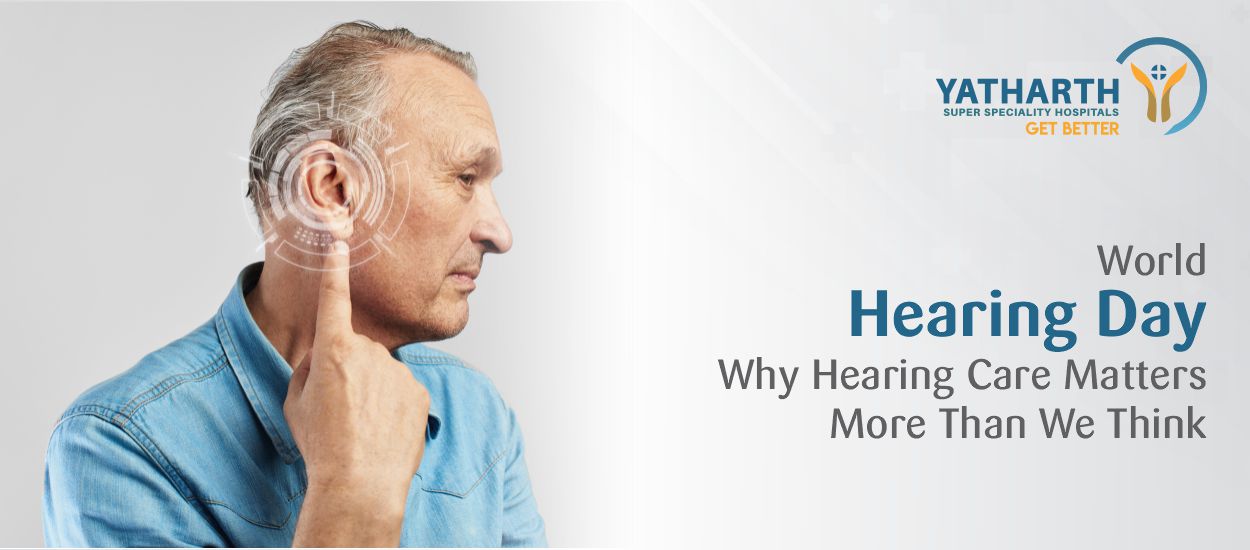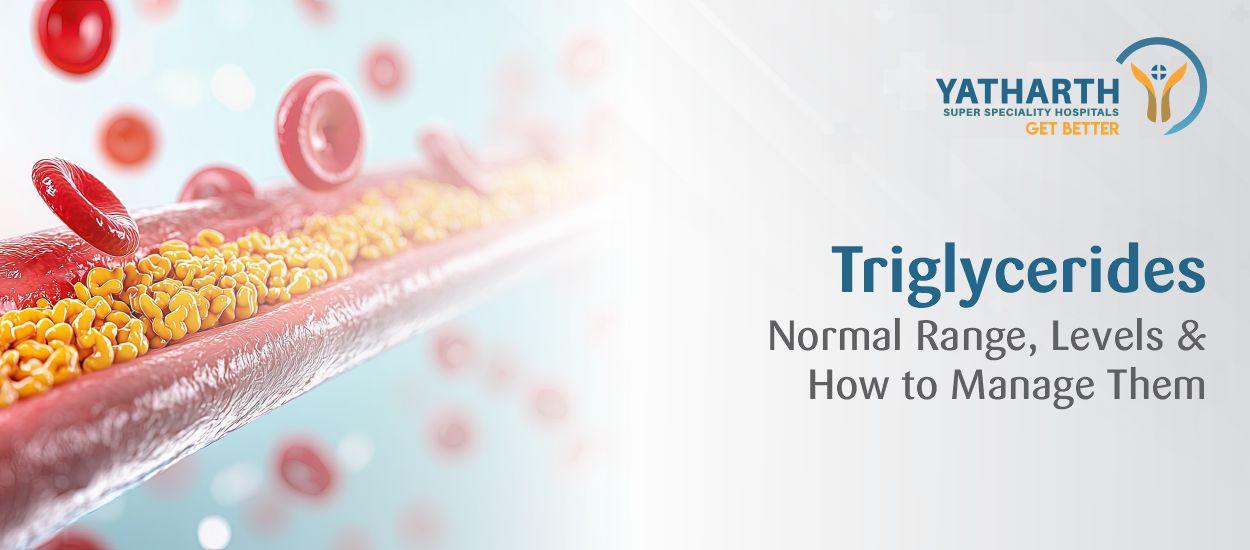High blood pressure, medically known as hypertension, is one of the most common yet often overlooked health conditions worldwide. It occurs when the force of blood against the artery walls remains consistently high, putting extra strain on the heart and blood vessels. Over time, this can lead to serious health complications such as heart disease, stroke, or kidney damage. What makes hypertension particularly concerning is its silent nature. As hypertension does not show any warning signs in the early stages, many people discover it only when complications arise, even though early detection and management can prevent long-term complications.
To help, in this article, we will discuss the symptoms, causes, and risk factors of high blood pressure, along with when to consult a doctor for timely care and effective management. Let’s start by understanding what high BP actually means.
What is Hypertension (High Blood Pressure)?
Hypertension, or high blood pressure, occurs when the pressure of blood flowing through the arteries remains higher than normal for a long time. Blood pressure is measured in millimetres of mercury (mm Hg) and recorded as two readings: systolic pressure (the force when the heart beats) over diastolic pressure (the force when the heart relaxes between beats).
A normal BP reading is typically around 120/80 mm Hg. When it consistently measures 140/90 mm Hg or higher, it is classified as hypertension. Elevated pressure causes the heart to work harder and can gradually damage blood vessels, increasing the risk of serious health problems such as heart attack, stroke, and kidney disease.
Because hypertension often develops slowly and without obvious symptoms, it is frequently called the “silent killer.” Regular blood pressure checks are, therefore, essential for early detection and effective management.
Common Symptoms of High Blood Pressure
In many cases, hypertension does not cause noticeable symptoms, which is why regular monitoring is so important. However, when blood pressure rises to very high levels, certain signs may appear that signal the need for immediate medical attention.
Common symptoms associated with high blood pressure include:
-
Persistent or severe headaches, often at the back of the head
-
Dizziness or light-headedness
-
Blurred or double vision
-
Shortness of breath
-
Chest pain or a feeling of tightness
-
Fatigue or confusion
-
Nosebleeds, particularly during a sudden rise in blood pressure
-
Irregular heartbeat or palpitations
These symptoms are not exclusive to hypertension and may occur due to other conditions, but if they persist, it’s important to immediately get your blood pressure checked. Because high BP can quietly damage organs over time, regular screening is one of the best ways to prevent complications.
Causes and Risk Factors of Hypertension
High blood pressure can develop gradually over time or result from an underlying health condition. Understanding the causes and risk factors helps in identifying those at risk and taking preventive steps early.
Common causes and risk factors include:
-
Genetics: A family history of hypertension increases susceptibility.
-
Age: Risk rises with age as blood vessels become less elastic.
-
Obesity: Excess weight strains the heart and raises blood pressure.
-
High Salt Intake: Too much sodium in the diet can lead to fluid retention and increased pressure.
-
Physical Inactivity: A sedentary lifestyle contributes to weight gain and poor heart health.
-
Excessive Alcohol and Tobacco Use: Both can damage blood vessels and raise BP levels.
-
Stress: Chronic stress may trigger temporary BP spikes that, over time, become persistent.
-
Underlying Conditions: Kidney disease, thyroid disorders, and hormonal imbalances can cause secondary hypertension.
-
Poor Sleep or Sleep Apnoea: Interrupted breathing during sleep can raise BP levels.
Recognising and managing these risk factors through lifestyle adjustments and regular check-ups can help prevent hypertension or keep it under control.
Types of Hypertension
Doctors classify hypertension into several types based on its cause and how consistently it occurs. Identifying the type of high blood pressure helps in deciding the most effective treatment and management plan. Common types include:
1. Primary (Essential) Hypertension
This is the most common form of hypertension, developing slowly over many years without a clear cause. Factors such as genetics, ageing, and unhealthy lifestyle habits contribute significantly to its onset.
2. Secondary Hypertension
Occurs due to an identifiable underlying condition such as kidney disease, thyroid disorders, adrenal gland tumours, or the use of certain medications like birth control pills and steroids.
3. White Coat Hypertension
A temporary rise in blood pressure that occurs during medical visits due to anxiety or stress, while readings outside the clinic remain normal.
4. Masked Hypertension
The opposite of white coat hypertension, masked hypertension blood pressure appears normal at the doctor’s office but is elevated at home or in daily activities.
5. Sustained Hypertension
Blood pressure remains consistently high both in clinical and home settings, indicating a long-term condition that needs regular management.
6. Nocturnal Hypertension
A form of high blood pressure that stays elevated during sleep, increasing the risk of heart and kidney problems.
7. Pulmonary Hypertension
High blood pressure in the arteries of the lungs, which can strain the right side of the heart.
8. Gestational Hypertension
Gestational Hypertension is a condition in pregnancy where high blood pressure develops after 20 weeks of gestation in a woman who previously had normal blood pressure.
It does not include protein in the urine or signs of organ damage (unlike preeclampsia).
Understanding the specific type of hypertension enables timely intervention and helps prevent complications related to heart, brain, and kidney health.
Complications of Uncontrolled Hypertension
When left untreated or poorly managed, hypertension can silently damage vital organs over time. The longer blood pressure stays high, the greater the strain it places on the heart, arteries, and other systems in the body. This can lead to serious and sometimes life-threatening complications. Major complications of uncontrolled high blood pressure include:
-
Heart Disease: Persistent high pressure weakens the heart muscle, leading to coronary artery disease, heart failure, or heart attacks.
-
Stroke: Elevated blood pressure can cause blood vessels in the brain to rupture or become blocked, resulting in a stroke.
-
Kidney Damage: Hypertension is a leading cause of chronic kidney disease as it damages the blood vessels that filter waste from the body.
-
Vision Problems: High blood pressure can affect the small blood vessels in the eyes, leading to blurred vision or even vision loss.
-
Aneurysm: Constant pressure can cause blood vessel walls to weaken and bulge, increasing the risk of rupture.
-
Peripheral Artery Disease: Narrowed arteries reduce blood flow to the limbs, causing pain and mobility issues.
-
Cognitive Decline: Long-term hypertension can impair memory and contribute to dementia or reduced mental clarity.
Controlling blood pressure through regular monitoring, healthy habits, and prescribed medication is the best way to reduce these risks and maintain long-term heart and organ health.
How is Hypertension Diagnosed?
Diagnosing hypertension involves more than a single blood pressure reading. Since blood pressure can fluctuate throughout the day, multiple measurements are usually taken to confirm a diagnosis. Doctors also assess underlying causes, risk factors, and potential organ damage to determine the best course of management.
Common diagnostic methods include:
-
Blood Pressure Measurement: Using a digital or manual sphygmomanometer, readings are taken on different occasions to confirm consistent elevation.
-
Ambulatory Blood Pressure Monitoring (ABPM): A portable device records blood pressure over 24 hours, providing a clearer picture of fluctuations during daily activities and sleep.
-
Home Blood Pressure Monitoring: Helps patients track readings at home, which is especially useful for detecting white coat or masked hypertension.
-
Blood Tests: Assess cholesterol levels, blood sugar, kidney function, and other markers to identify possible causes or complications.
-
Urine Tests: Check for protein or other abnormalities that may indicate kidney involvement.
-
Electrocardiogram (ECG) or Echocardiogram: Evaluate heart rhythm and detect signs of heart enlargement or strain caused by prolonged high blood pressure.
Regular screening is essential, especially for adults over 40 or those with a family history of hypertension or heart disease. Early diagnosis allows for prompt treatment, helping prevent long-term complications.
Treatment and Management of Hypertension
Managing high blood pressure involves a combination of lifestyle modifications and medical treatment, depending on its severity and underlying causes. The goal is to bring blood pressure within a healthy range and prevent complications affecting the heart, brain, and kidneys. Treatment approaches include:
1. Lifestyle Modifications
Healthy lifestyle changes are the first and most effective step in managing hypertension. These include:
-
Maintaining a Healthy Weight: Losing even a small amount of weight can significantly lower blood pressure.
-
Adopting a Heart-Healthy Diet: Follow the DASH (Dietary Approaches to Stop Hypertension) diet, which emphasises fruits, vegetables, whole grains, lean proteins, and low-fat dairy while limiting salt and processed foods.
-
Reducing Sodium Intake: Aim for less than 5 grams of salt per day.
-
Exercising Regularly: At least 30 minutes of moderate activity such as walking, cycling, or swimming most days of the week.
-
Limiting Alcohol and Quitting Smoking: Both habits increase blood pressure and damage blood vessels.
-
Managing Stress: Practise deep breathing, yoga, or meditation to keep stress and anxiety under control.
-
Getting Quality Sleep: Poor sleep can worsen blood pressure levels, especially in those with sleep apnoea.
2. Medications
If lifestyle changes alone are not enough, doctors may prescribe medications based on the individual’s condition. Common options include:
-
Diuretics: Help remove excess salt and water from the body.
-
ACE Inhibitors and ARBs: Relax blood vessels and reduce strain on the heart.
-
Beta-Blockers: Slow the heart rate and decrease blood pressure.
-
Calcium Channel Blockers: Prevent calcium from entering heart cells, relaxing blood vessels.
3. Regular Monitoring and Follow-ups
Routine check-ups are essential to ensure medications are effective and blood pressure remains within the target range. Adjustments in treatment may be required over time to maintain control.
When managed properly, hypertension can be effectively controlled, reducing the risk of serious complications and improving overall heart health.
When to See a Doctor?
High blood pressure often develops gradually and without noticeable symptoms, making regular health check-ups the best way to detect it early. However, certain warning signs or persistent readings indicate the need for prompt medical attention.
You should consult a doctor if you:
-
Consistently record blood pressure readings above 140/90 mm Hg at home.
-
Experience frequent or severe headaches, dizziness, or blurred vision.
-
Feel chest pain, tightness, or shortness of breath.
-
Notice an irregular heartbeat or episodes of palpitations.
-
Have swelling in the ankles, sudden fatigue, or confusion.
-
Have a family history of heart disease, stroke, or kidney problems.
-
Are pregnant and notice rising blood pressure levels.
Seek emergency care immediately if:
-
Your blood pressure reading exceeds 180/120 mm Hg, as this could indicate a hypertensive crisis.
-
You experience chest pain, vision loss, or sudden weakness, as these could be indicating serious complications such as a stroke or heart attack.
Timely consultation helps identify potential risks early, allowing for proper diagnosis, treatment, and lifestyle management to prevent further complications.
Why Choose Yatharth Hospital for Hypertension Treatment?
At Yatharth Hospital, we understand that managing hypertension is not just about lowering blood pressure, it’s about protecting your heart, kidneys, and overall well-being. Our team provides a holistic approach that focuses on accurate diagnosis, personalised treatment, and long-term management for lasting health. We offer:
Experienced Cardiologists
Our highly skilled cardiologists specialise in diagnosing and managing all forms of hypertension, from mild to resistant cases. Each patient receives a personalised care plan tailored to their specific condition, medical history, and lifestyle.
Advanced Diagnostic and Monitoring Facilities
Yatharth Hospital is equipped with modern diagnostic tools such as ECG, echocardiography, stress testing, and 24-hour ambulatory blood pressure monitoring (ABPM). These technologies help ensure precise evaluation and continuous monitoring of your heart health.
Comprehensive Cardiac Care
Beyond treatment, our multidisciplinary team focuses on preventive care through diet counselling, lifestyle modification programmes, and regular follow-ups. This approach helps patients manage hypertension effectively and reduce their risk of heart attack, stroke, and other related complications.
At Yatharth Hospital, we are committed to providing expert care with compassion, helping every patient lead a healthier, more balanced life.
Protecting Your Heart Through Early Care
High blood pressure may be silent, but its effects can be serious if left unchecked. Regular monitoring, a healthy lifestyle, and timely medical attention are key to preventing complications and maintaining long-term heart health. With proper treatment and continuous follow-up, hypertension can be effectively managed, allowing individuals to live healthy, active lives.
At Yatharth Hospital, our expert cardiologists and healthcare professionals are dedicated to helping patients understand, manage, and control their blood pressure through advanced diagnostics, personalised treatment, and compassionate care.
To consult a cardiologist at Yatharth Hospital, book an appointment online and our team will guide you through the next steps with complete care and support.
